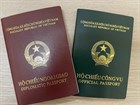Regarding the authority to resolve collective labor disputes, the Draft Amendment to the Labor Code (which is still in the public consultation phase) has abolished the authority of the Chairman of the District People's Committee, replacing it with the Labor Arbitration Council.
According to the current regulations in Article 203 of the Labor Code 2012, the agencies, organizations, and individuals authorized to resolve collective labor disputes over rights include:
- Labor conciliators;- Chairperson of the People's Committee of the district, subordinated district-level town/city (hereinafter referred to as the Chairperson of the district-level People's Committee);- People's Court.
However, in the Draft Law amending the Labor Code, the authority to resolve collective labor disputes over rights has removed the Chairperson of the district-level People's Committee. Therefore, is it really appropriate to remove the authority of the Chairperson of the district-level People's Committee in resolving collective labor disputes?

Illustrative Image
According to the discussion contents on the Draft law amending and supplementing the Labor Code 2012: “Does the involvement of administrative agencies in resolving collective labor disputes truly fulfill its role, or does it diminish the negotiation and conciliation process between employees and employers?”
Most opinions suggest that administrative agencies should not intervene in labor relations between employees and employers, as it curtails the negotiation and conciliation process between the two parties. The participation of the district-level head as the district chairperson sometimes facilitates security and order, enabling businesses to quickly stabilize their production activities. However, there are still shortcomings when direct intervention is made to protect workers' rights.
According to Mr. Pham Minh Huan, former Deputy Minister of Labor, War Invalids, and Social Affairs, a member of the Drafting Committee: “Government agencies at all levels have the role of guiding and supporting the establishment of social institutions. If administrative agencies intervene in dispute relations, it will eliminate the positive aspects of negotiation and agreement. For example, when state management agencies get involved, everyone knows the government is siding with the employees, and employers often compromise and nullify the negotiations and dialogues.”
In practice, when strikes occur, most businesses turn to the Industrial Zone Management Board. If unresolved, the Management Board turns to the higher-level labor union rather than the district chairperson. Therefore, it can be seen that the role of the district chairperson has been overlooked and has not been fully utilized.
Hence, in Article 203 of the Draft Amendment of the Labor Code, the authority of the district chairperson to resolve labor disputes in enterprises has been proposed to be removed. Instead of the district chairperson, the Labor Arbitration Council will take over.
The Labor Arbitration Council is established by the decision of the Chairperson of the provincial People's Committee and consists of the Council Chairman, who heads the state management agency of labor, the Council Secretary, and members representing the provincial labor union and the employer's representative organization. The number of council members is odd and does not exceed 07 persons.
The resolution of collective labor disputes over rights by the Labor Arbitration Council is stipulated as follows:
- Within 05 working days from the date of receiving the request to resolve a collective labor dispute over rights, the Labor Arbitration Council must proceed with resolving the dispute.- The labor dispute resolution session must have representatives from both disputing parties. If necessary, the Labor Arbitration Council may invite representatives of relevant agencies and organizations to attend the session.- The Labor Arbitration Council bases its resolution on labor laws, collective labor agreements, registered internal labor regulations, and other lawful agreements to consider and resolve the labor dispute. If the labor dispute arises from a legal violation by one of the parties or concerns the rights of the labor union, the Labor Arbitration Council shall recommend that the competent authority impose sanctions, apply remedial measures, and compensate.
In cases where the labor dispute arises from different interpretations of the contents of the collective labor agreement or other internal regulations, the Labor Arbitration Council shall independently issue a resolution decision.- In case the parties have evidence proving the decision of the Labor Arbitration Council violates labor dispute resolution principles or if the Council fails to resolve within the prescribed time, the parties have the right to request the Court to resolve or proceed with the procedures to strike as per the law.
 Article table of contents
Article table of contents









